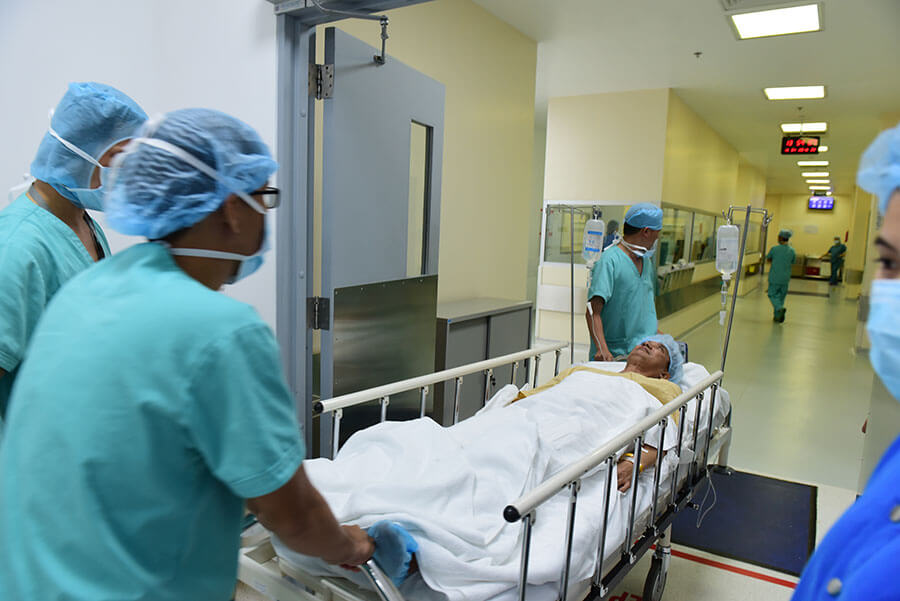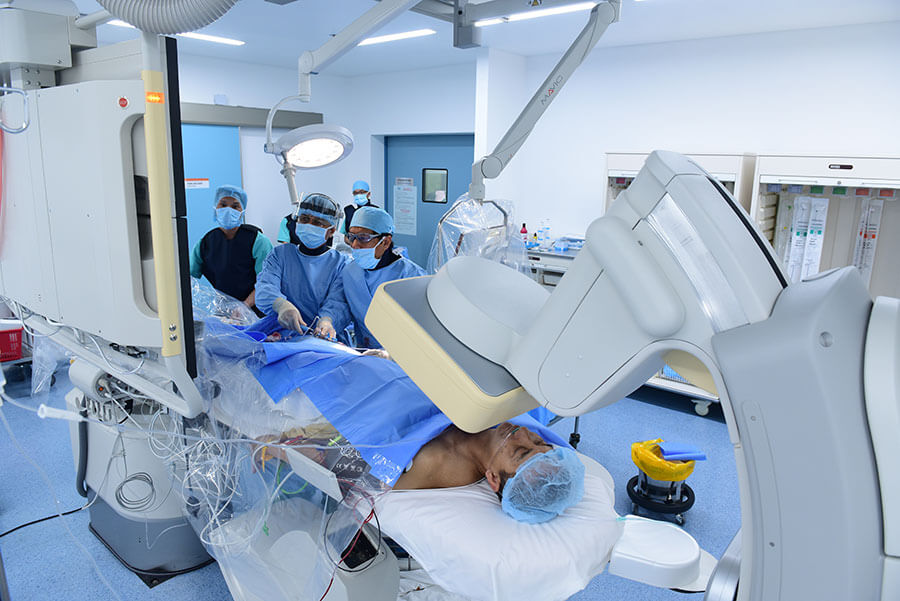At 2 pm on April 19, FV Hospital has successfully performed its first interventional cardiology surgery. A Filipino patient was hospitalised for pain on the left side of his chest. After conducting an electrocardiogram and cardiac test, FVH’s doctors diagnosed the patient with acute myocardial infarction. This was a very dangerous condition, which has a high mortality rate of 25 per cent to 30 per cent. A team of interventional cardiologists was formed immediately to perform interventional cardiology surgery for the patient.

Coronary artery angiography results showed that the middle part of the patient’s front ventricular artery was completely blocked. This was the primary cause of myocardial infarction. After more than 30 minutes in the operating theatre, doctors and the patient’s relatives were relieved that the interventional cardiology surgery was successful.
The patient’s coronary artery was well intervened with a medicine-soaked stent which was three mm diameter and 19 mm long, with TIMI III flow. The patient no longer experienced chest pain and recovered immediately after the surgery.
Dr Huynh Ngoc Long said he was very happy and relieved as this was the first interventional cardiology surgery performed at FV Hospital. The doctor team saved the patient and at the same time helped prevent heart failure in the long term.

Every year, myocardial infarction kills 20 million people around the world. This dangerous disease can cause death to a patient at any time. Symptoms of myocardial infarction include:
- Pain on the left side of the chest, from the epigastrium (the part of the abdomen immediately over the stomach) up to the left jaw. This pain may also spread to the left hand. The wider the painful area, the more dangerous the situation. Pain usually lasts for more than 15 minutes.
- Arrhythmia (tachycardia or slower than normal heart rate or irregular heart rate).
- Pale skin (patients sweat when the condition worsens).
- Feelings of restlessness and discomfort. Abdominal pain, nausea and vomiting are common in patients with myocardial infarction.
According to Dr Ngoc Long, pain caused by myocardial infarction is often mistaken with other chest pains or stomach pain; therefore, patients often ignore these symptoms.
Once suffering chest pain, a patient is recommended to have an electrocardiogram to determine their condition and ensure that they receive immediate treatment if necessary before a complication occurs.
An electrocardiogram is an affordable and non-invasive screening method which can be easily performed at any medical facility offering this service.



